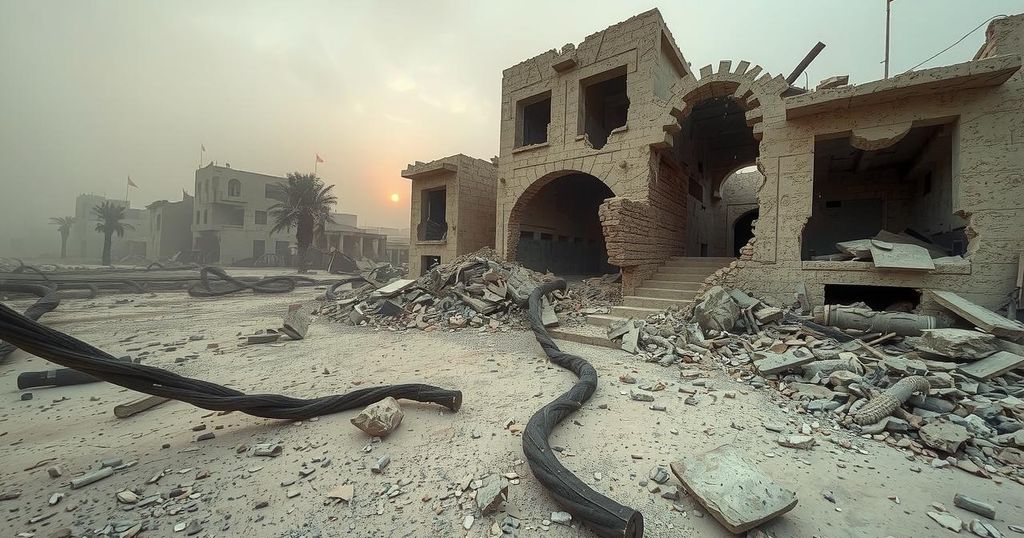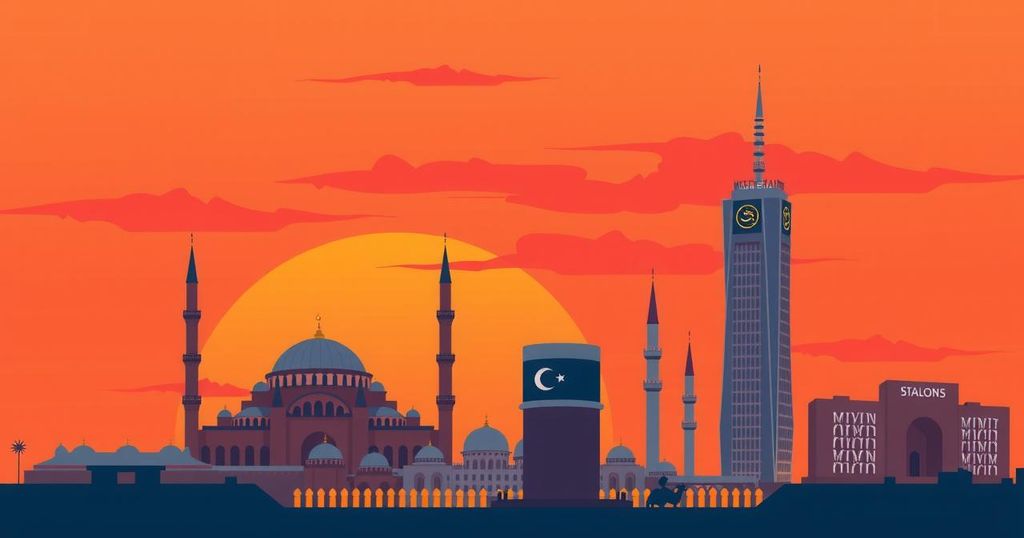The U.S. has sanctioned Rwandan officials for their alleged support of the M23 rebels in Eastern DRC, which recently captured territory including Bukavu and Goma. Analysts suggest M23’s military strength stems from Rwandan backing, while Uganda’s dual role complicates the situation. M23’s leadership has indicated ambitions to further expand control, prompting concerns about regional stability and the need for effective dialogue. President Tshisekedi criticized the global response to the crisis, with Rwanda dismissing the sanctions as unjustified.
The United States has recently imposed sanctions on a Rwandan government minister and the spokesperson for the M23 rebel group due to their involvement in the ongoing conflict in eastern Democratic Republic of Congo (DRC). The M23 group has made considerable territorial gains, including the recent takeover of Bukavu and Goma, which has raised significant concerns within international and regional communities regarding the group’s military support from Rwanda.
Analysts, including Sasha Lezhnev from The Sentry, assert that the M23 rebels are receiving extensive backing from Rwanda, continuing a pattern of support and rearmament that has existed for several years. Reports suggest that Rwanda has deployed several thousand troops to the DRC, despite the Rwandan government’s denials of involvement. Lezhnev emphasized that the crisis could have been avoided had the international community maintained its focus on the situation.
Rwanda’s President Kagame accuses the DRC of supporting the Democratic Forces for the Liberation of Rwanda (FDLR), a rebel group composed largely of individuals involved in the events of the 1994 Rwandan genocide. Meanwhile, the M23, formed in 2012, continues to capitalize on the mineral wealth in the eastern DRC, which is plagued by numerous armed factions vying for control.
Claude Gatebuke, a survivor of the Rwandan genocide, noted that Rwanda, in conjunction with Uganda, is implicated in exploiting Congolese resources for Western corporations. The dichotomy of Uganda’s military involvement—fighting alongside DRC forces against the Allied Democratic Forces while allegedly destabilizing the region—further complicates the situation, according to Mvemba Phezo Dizolele of the Center for Strategic and International Studies.
M23 leadership has expressed ambitions extending to controlling Kinshasa, sparking debates about their ultimate goals in the region. While Lezhnev speculates they may seek to consolidate power in North and South Kivu, Gatebuke warns that their strategy may involve establishing a de facto governance in these territories despite local opposition to secession. A statement from M23 calls for sincere dialogue with the DRC government, indicating a desire for engagement amidst the tensions.
In light of escalating violence, DRC President Felix Tshisekedi has criticized the lack of decisive action from the global community against Rwanda. In response to the sanctions, Rwandan Foreign Minister Olivier Nduhungirehe condemned the measures as unwarranted and counterproductive to regional stability, underscoring Rwanda’s commitment to securing its borders while contending with hostile forces in the area.
The complexities surrounding the motivations and ambitions of the M23 rebels in Eastern DRC highlight significant geopolitical tensions involving Rwanda and Uganda. Despite calls for dialogue, the situation remains precarious with ongoing violence and military engagements complicating any potential resolutions. The international community’s role and responsiveness will be pivotal in shaping the future stability of the region.
Original Source: www.voanews.com




